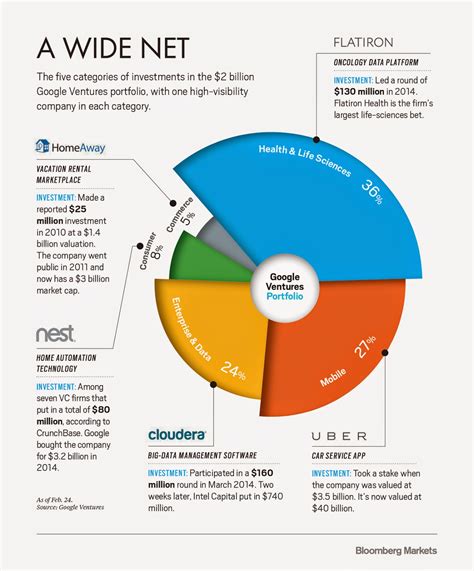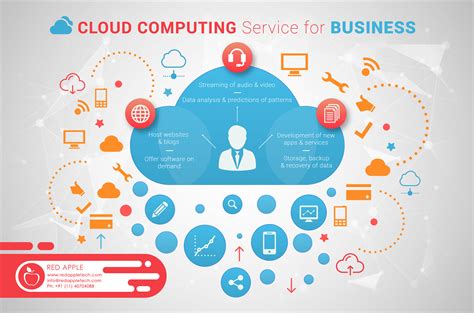Breaking News


Popular News


Discover Google’s ventures beyond search and advertising, including virtual reality, renewable energy, cloud computing, autonomous vehicles, healthcare technology, and consumer electronics diversification.In recent years, Google has undergone a significant transformation, expanding far beyond its origins as a search engine and advertising platform. The tech giant has strategically invested in a variety of innovative ventures, reflecting its commitment to diversification and technological advancement. From the development of virtual reality technology to the investment in renewable energy, Google has shown a remarkable willingness to explore new frontiers. Additionally, the company has experienced substantial growth in its cloud computing services and has made significant strides in the development of autonomous vehicles. Furthermore, Google has been actively involved in exploring healthcare technology and has diversified its portfolio by entering the consumer electronics market. This blog post will explore Google’s ventures beyond search and advertising, highlighting the company’s efforts to embrace and lead the way in various industries, solidifying its position as a multifaceted technology powerhouse.
Contents

Expansion into Virtual Reality
Google’s venture into virtual reality has shown that the company is not content with just dominating the search engine and advertising markets. With the introduction of Google Cardboard, a low-cost virtual reality viewer that works with smartphones, Google has made a significant impact on the VR industry. The company’s commitment to making virtual reality more accessible and affordable has opened up new opportunities for consumers and developers alike.
Furthermore, Google’s acquisition of VR and AR (augmented reality) companies such as Owlchemy Labs and North has signaled the company’s ambition to become a major player in the VR space. Its investment in creating immersive experiences for its users demonstrates that Google is committed to pushing the boundaries of technology and expanding its presence in the VR market.
In addition to hardware and software development, Google has also been actively investing in VR content creation, partnering with media companies and content creators to produce high-quality VR experiences. This strategic move not only enhances the value of Google’s VR platforms but also provides unique and engaging content for its users.
| Benefits of Google’s Expansion into Virtual Reality |
|---|
|
|
|
|
|
|

In recent years, Google has made significant strides in its investment in renewable energy, demonstrating its commitment to sustainability and the environment. The tech giant has been investing heavily in solar and wind energy projects across the globe, aiming to power its operations with clean, renewable energy sources. They have also been actively pursuing power purchase agreements to buy renewable energy directly from the source, reducing their carbon footprint and contributing to the growth of the renewable energy market.
Google’s investment in renewable energy is not only driven by a sense of corporate responsibility, but also by the potential for long-term cost savings. By investing in renewable energy, they are able to hedge against fluctuating energy prices and reduce their dependence on traditional fossil fuels. This forward-thinking approach not only benefits the environment, but also makes good business sense.
Furthermore, Google’s investment in renewable energy has also paved the way for innovation and technological advancements in the clean energy sector. By supporting renewable energy projects, they are driving the development of new technologies and solutions that have the potential to revolutionize the way we produce and consume energy.
In conclusion, Google’s investment in renewable energy not only aligns with their commitment to sustainability, but also positions them as a leader in the global transition to clean, renewable energy. Their efforts in this area have the potential to make a significant impact on the environment and contribute to a more sustainable future for generations to come.

Cloud computing has seen rapid and steady growth in recent years as businesses and individuals alike increasingly turn to cloud services for their technology needs. The convenience and flexibility of cloud computing services have made them an attractive option for storing, accessing, and managing data and applications.
Companies such as Amazon Web Services, Microsoft Azure, and Google Cloud Platform are leading the charge in providing cloud computing services to businesses of all sizes. These services include infrastructure as a service (IaaS), platform as a service (PaaS), and software as a service (SaaS) options, allowing businesses to tailor their cloud solutions to their specific needs and budget.
The advantages of cloud computing services are vast, encompassing cost savings, scalability, security, and disaster recovery capabilities. Businesses that embrace cloud computing are able to reduce infrastructure costs, rapidly scale their IT resources, and entrust the security and maintenance of their data to experienced cloud providers.
| Advantages of Cloud Computing | Provider |
|---|---|
| Cost savings | Amazon Web Services |
| Scalability | Microsoft Azure |
| Security | Google Cloud Platform |
The future of cloud computing services is bright, with continued innovations in areas such as edge computing, machine learning, and serverless computing opening up even more possibilities for businesses looking to harness the power of the cloud. As the demand for cloud services grows, so too will the competition among providers, leading to further advancements and improvements in this ever-evolving industry.

In recent years, Google has expanded its focus beyond just search and advertising, and has actively pursued ventures in autonomous vehicles. This emerging technology has the potential to revolutionize transportation as we know it, and Google is at the forefront of this innovation.
Through its subsidiary Waymo, Google has invested significant resources into the development of autonomous vehicle technology. This includes the creation of self-driving cars and the infrastructure necessary to support them, such as advanced sensors and mapping systems.
Furthermore, Google has formed partnerships with major automotive companies to integrate its autonomous technology into existing vehicle models. This strategic collaboration has positioned Google as a leader in the race towards autonomous vehicles.
As the demand for more efficient and safe transportation solutions continues to grow, Google’s ventures in autonomous vehicles are poised to play a significant role in shaping the future of mobility.

Google has been on the cutting edge of technological advancements in recent years. One area that they have been heavily investing in is healthcare technology. With the rise of wearable devices and the internet of things, Google has been exploring ways to improve the healthcare industry through the use of technology. From smartwatches that can monitor a person’s heart rate and activity levels to sensors that can track a patient’s vitals in real-time, Google is at the forefront of healthcare innovation.
Furthermore, Google has also been delving into the world of artificial intelligence in healthcare. They have been developing algorithms that can assist doctors in diagnosing diseases and analyzing medical images. This has the potential to improve healthcare outcomes and reduce the burden on healthcare professionals.
In addition to this, Google has been working on telemedicine platforms that allow patients to consult with doctors remotely. This has become especially important in the wake of the COVID-19 pandemic, as it allows patients to seek medical advice without risking exposure to the virus.
Finally, Google has also been investing in genomics and personalized medicine. By analyzing a person’s genetic makeup, Google aims to provide personalized treatment plans tailored to an individual’s unique genetic profile. This has the potential to revolutionize healthcare by providing more effective and targeted treatments.

Google, known primarily for its search engine and advertising platform, has significantly expanded its horizons in recent years, particularly in the realm of consumer electronics. With the introduction of products such as the Google Home smart speaker, the Pixel smartphone, and the Chromecast streaming device, the tech giant has made substantial strides in diversifying its offerings beyond its traditional core competencies.
In addition to hardware, Google has also delved into software and services related to consumer electronics, such as the Android operating system, Google Play store, and Google Assistant. This diversification into consumer electronics has not only allowed Google to tap into new revenue streams, but it has also enabled the company to integrate its various products and services into a seamless ecosystem, offering a more cohesive and comprehensive user experience.
Furthermore, Google’s foray into consumer electronics has positioned the company to compete more directly with other tech behemoths in the industry, such as Apple and Amazon, both of which have long been players in the consumer hardware market. By leveraging its technological expertise and vast resources, Google has been able to carve out a significant presence in the consumer electronics space, underscoring its commitment to innovation and expansion beyond its traditional offerings.
| Product | Description |
|---|---|
| Google Home | A voice-activated smart speaker that integrates with various smart home devices and services. |
| Pixel smartphone | An Android-based smartphone known for its advanced camera features and seamless integration with Google services. |
| Chromecast | A media streaming device that allows users to cast content from their mobile devices to their TV or speakers. |
With a strategic focus on consumer electronics, Google has demonstrated its willingness to adapt to evolving market trends and consumer preferences, reaffirming its status as a leading innovator and industry disruptor.

What are some of the ventures Google has expanded into?
Google has expanded into ventures such as self-driving cars, renewable energy, and life sciences.
How has Google diversified its business beyond search and advertising?
Google has diversified by investing in projects such as Google X, Google Ventures, and Google Capital.
What is the purpose of Google’s investment in renewable energy?
Google’s investment in renewable energy is aimed at making clean energy more accessible and affordable.
What are some of the projects under Google X?
Projects under Google X include self-driving cars, Project Loon, and the development of delivery drones.
How does Google’s expansion into life sciences impact the healthcare industry?
Google’s expansion into life sciences aims to create new technologies to improve healthcare, such as the development of contact lenses that can monitor glucose levels.
What is the role of Google Ventures and Google Capital in the company’s expansion?
Google Ventures and Google Capital are investment arms of Google that support and fund startups and growth-stage companies.
What are the potential benefits of Google’s ventures beyond search and advertising?
The potential benefits include advancements in technology, improved access to clean energy, and breakthroughs in healthcare innovation.